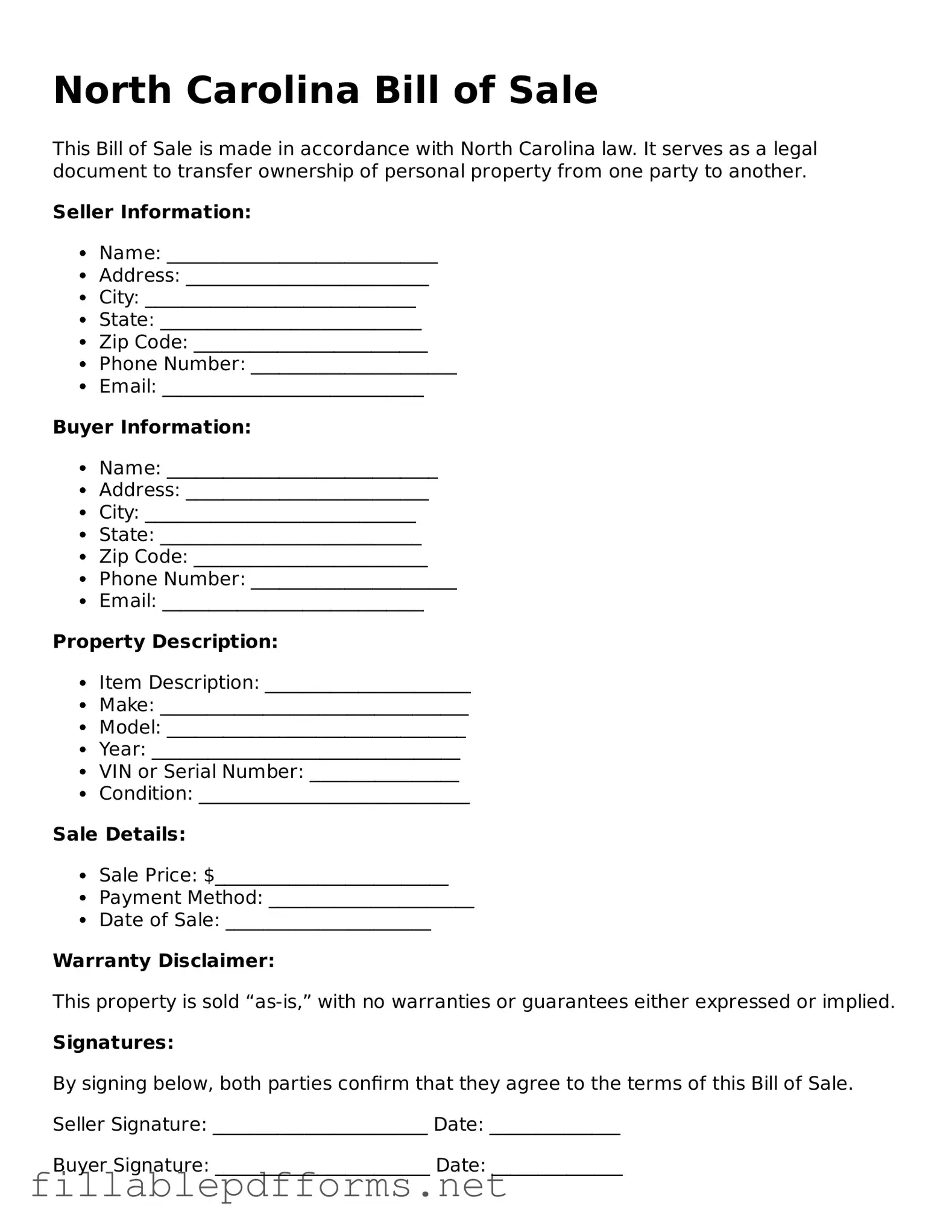Attorney-Verified Bill of Sale Form for North Carolina State
A North Carolina Bill of Sale form is a legal document that records the transfer of ownership of personal property from one party to another. This form provides essential details about the transaction, ensuring both the buyer and seller have a clear understanding of the terms. Using a Bill of Sale can help protect your rights and clarify responsibilities in the sale process.
Launch Editor Here

Attorney-Verified Bill of Sale Form for North Carolina State
Launch Editor Here

Launch Editor Here
or
▼ Bill of Sale PDF
Almost there — finish the form
Complete Bill of Sale online fast — no printing, no scanning.